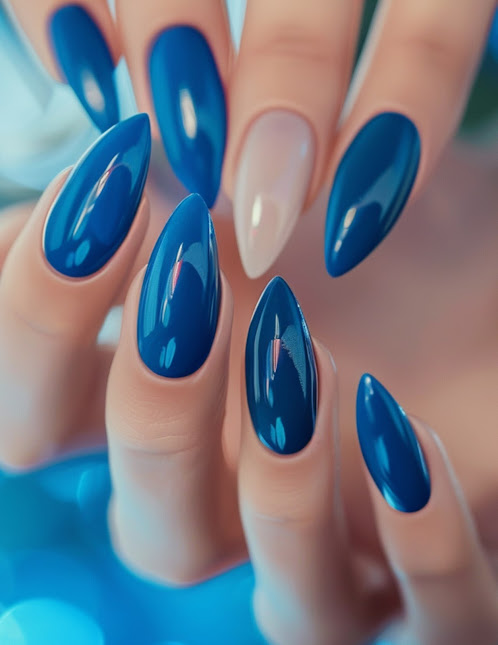Nails And Nail Fashion: An Islamic Perspective
Nail care and nail fashion are popular topics worldwide, and many Muslim women find themselves navigating beauty trends while staying true to Islamic principles. From vibrant nail polishes to elaborate nail art, there's no shortage of creative ways to express individuality. However, for Muslim women who prioritize adherence to Islamic guidelines, these choices often come with additional considerations regarding modesty, cleanliness, and religious obligations.
In this blog, we’ll explore nails and nail fashion from an Islamic perspective, addressing both the practical and spiritual aspects of this beautiful form of self-expression.
Nails and Wudu: A Key Consideration
One of the most important aspects of Islamic practice is performing wudu (ablution) before prayer. Wudu involves washing specific parts of the body, including the hands and nails, ensuring they are free from barriers that might prevent water from reaching the skin or nail surface.
Traditional nail polish creates a layer on the nails that water cannot penetrate, which can invalidate wudu. For this reason, many Muslim women avoid wearing nail polish during their daily prayers or opt to remove it before each wudu.
The Rise of Breathable Nail Polishes
In recent years, the beauty industry has introduced breathable nail polishes, often marketed as "halal nail polish." These polishes are designed to allow water and air to pass through the polish, enabling Muslim women to perform wudu without removing their nail color.
However, opinions on the permissibility of breathable nail polish vary among scholars. Some believe it fulfills the requirement for water permeability, while others remain cautious, emphasizing the importance of verifying the product’s claims. If you’re considering breathable nail polish, it’s a good idea to research reputable brands and consult knowledgeable scholars in your community.
Henna: A Traditional Alternative
For centuries, Muslim women have used henna as a natural and culturally rich alternative to modern nail polish. Henna stains the nails with a reddish-brown hue that does not create a barrier, making it fully compatible with wudu.
Henna is deeply rooted in Islamic tradition and is even mentioned in Hadith as a recommended adornment. Beyond its spiritual alignment, henna is a timeless, elegant, and chemical-free way to beautify the nails.
Nail Length and Hygiene in Islam
Islam places a strong emphasis on cleanliness and hygiene. Regarding nails, the Prophet Muhammad (peace be upon him) encouraged trimming them regularly to maintain cleanliness and prevent the accumulation of dirt.
Keeping nails excessively long can hinder proper hygiene, which is a key principle in Islam. While there is no specific restriction on nail length, moderation is advised, balancing beauty with the practicalities of cleanliness and wudu.
Modesty and Nail Fashion
Modesty in Islam extends to all aspects of life, including beauty and fashion. While nail art and bold colors can be a fun way to express oneself, some Muslim women prefer more understated styles to align with the principles of modesty.
Neutral tones, subtle designs, or henna-dyed nails are popular choices for those who want to embrace nail fashion while maintaining a modest aesthetic. Ultimately, preferences vary, and each individual finds their balance based on personal values and cultural influences.
Celebrating Special Occasions
Special occasions such as Eid, weddings, or family gatherings are an opportunity for Muslim women to embrace more elaborate nail fashion. On these occasions, many choose temporary nail decorations, press-on nails, or intricate henna designs that can be easily removed or adapted for daily prayers.
These celebrations highlight the flexibility within Islamic guidelines, allowing women to enjoy beauty and adornment within the framework of their faith.
Finding Balance: Nails and Faith
For Muslim women, nails and nail fashion are not just about beauty—they’re about striking a balance between self-expression and devotion. Here are a few tips for navigating this journey:
- Research Products: Look for halal-certified or breathable nail polishes if you want to wear nail color during prayer times.
- Embrace Alternatives: Consider henna or temporary nail art for a stylish yet wudu-friendly option.
- Moderation is Key: Keep nail length manageable to maintain hygiene and ease of wudu.
- Consult Scholars: When in doubt, seek guidance from knowledgeable Islamic scholars to make informed decisions.
Nail care and fashion offer a beautiful way to express individuality, and Muslim women are no exception to this. By understanding Islamic guidelines and embracing alternatives like henna or breathable nail polish, it’s possible to enjoy nail fashion without compromising one’s faith.
Remember, beauty in Islam goes beyond aesthetics—it’s also about intention, cleanliness, and maintaining a connection to Allah. With thoughtful choices, Muslim women can celebrate their personal style while honoring their spiritual commitments.
How do you approach nail care and fashion as a Muslim? Share your thoughts and tips in the comments below!






Comments
Post a Comment